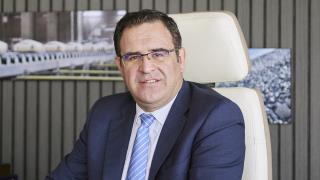The Emirates RDF production plant in Umm al Quwain, UAE, has received much attention since its launch. Designed to power the local cement industry with refuse-derived fuel (RDF), Jori Kaaresmaa, senior process specialist at BMH Technology Oy, speaks to ICR about the development and process behind the facility, and the sustainable opportunities for other cement producers in the Gulf region and beyond.
ICR: What is the main history of BMH Technology and its work within the waste recycling sector?
Jori Kaaresmaa (JK): Established in 1929, BMH Technology has a long history of working with material handling solutions. The company’s traditional business in wood-based biomass handling has been with the energy sector as well as pulp and paper mills.
At the turn of the century, BMH developed its SRF/RDF [solid recovered fuel/refuse-derived fuel] production technology and launched the Tyrannosaurus® Shredder. Since then, BMH Technology has delivered dozens of waste refining plants globally and become one of the global leaders in industrial-scale waste refining technology.
ICR: How is the company set up to work with the cement sector (and suppliers to the cement sector)?
JK: In the cement sector BMH mainly acts as a technology supplier for SRF production facilities. BMH is also a professional in alternative fuel receiving, handling, storing and feeding systems, so these solutions are also available in the cement sector.
Even before creating its own SRF production technology, BMH’s history lies with solid fuel (SRF, RDF, wood chips, bark and other types of biomass) processing and handling systems in the power sector where these solid fuels are considered not as alternative fuels but as primary fuels that require robust, reliable and high-capacity solutions.
Because we have applied the same technical solutions in the cement sector our systems are most attractive in the applications where high capacities are handled and where reliability plays a key role.
